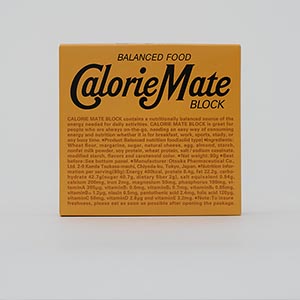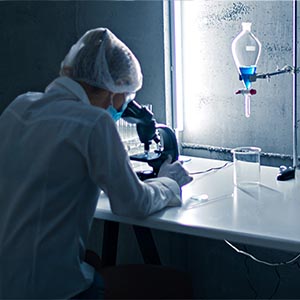Cancer is the leading cause of death in Japan. It is said that approximately 50% of Japanese people will be diagnosed with some kind of cancer in the course of their lifetimes. As cancer cells proliferate, they may spread through lymphatic or blood vessels to other sites in the body. Because many types of cancer cannot be fully eradicated by localized treatments such as surgery and radiation therapy, researchers around the world are engaged in research and development of anticancer drugs. A member of the Otsuka group of companies, Taiho Pharmaceutical has been a tenacious contributor to the history of anticancer agents.

In 1969, Taiho Pharmaceutical's president Yukio Kobayashi visited the former Soviet Union for business discussions on ameliorative agents for indefinite complaints. Upon conclusion of discussions, the group arranged to visit pharmaceutical research facilities and factories before returning to Japan. During one such visit, Kobayashi noticed an ampule sitting on a desk. It was a sample of an anticancer compound made by the Institute of Organic Synthesis in the Republic of Latvia. Formerly engaged in drug development, Kobayashi was able to grasp the nature and characteristics of the compound based on a researcher's simple explanation. Intuiting its great potential, he proposed a joint research program on-the-spot. This was the moment when Taiho Pharmaceutical became involved in research related to anticancer drugs.

Upon returning to Japan, preclinical research verified the compound's efficacy, confirming its ability to shrink cancer. However, when proceeding on to clinical trials, obstacles were soon encountered. The research partners did not have the facilities to manufacture the large amounts of test agents required for clinical trials. Kobayashi once again visited the Soviet Union where, despite dissenting opinions, he promptly agreed to contribute up to one tenth of the company's annual revenues for capital investment. As president, Kobayashi was willing to accept responsibility for the results of his own decision.
In 1974, five years after the first auspicious encounter in the Soviet Union, Taiho Pharmaceutical finally launched injectable and oral anticancer agents. This eventually led to wide use of oral anticancer agents in chemotherapy regimens. However, the post-launch path was far from smooth. At a time when surgery was the primary approach to cancer treatment, a great number of doctors espoused the belief that “cancer cannot be cured with pharmaceutical agents.” Many questioned Taiho Pharmaceutical's huge investment. But no one at Taiho Pharmaceutical suggested that research should be suspended. That's because everyone involved believed that this new anticancer agent would change the accepted norms of cancer treatment.

Development of the oral anticancer agent enabled outpatient therapy, and opened up new avenues for cancer treatment at a time when hospitalization was the general rule. This also led to the new treatment concept of adjuvant chemotherapy, in which surgery is supplemented by administration of anticancer agents. Fueled by the tenacity of Taiho Pharmaceutical, this oral anticancer agent changed the course of cancer treatment. The passion of each and every researcher, determined to deliver the hope of new drugs to as many patients as possible…members of the Otsuka group of companies continue to take up the challenge of unmet medical needs.










